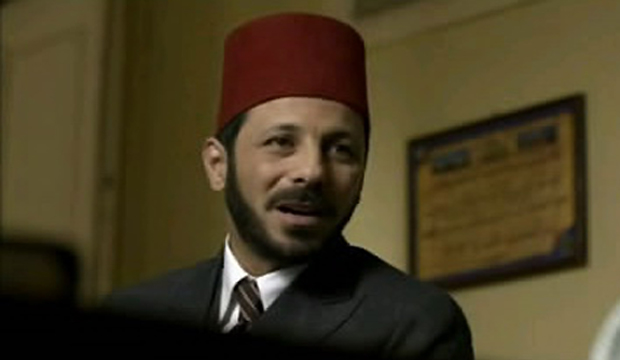As Ramadan draws to a close, anyone who watched the slew of Egyptian television dramas will have noticed the increasingly critical manner in which the Muslim Brotherhood, as well as other extremist groups, are being dealt with.
This year’s Ramadan TV dramas have featured intense attacks on the Muslim Brotherhood and its members, criticism of its hierarchical structure and secret mechanisms, as well as its controversial discourse and maneuvering.
This was only to be expected given the state of public anger in Egypt towards the Muslim Brotherhood. This anger towards the Brotherhood burns even fiercer among Egypt’s artists and entertainers, given the Islamists’ attempts to clamp down on the entertainment industry during the Mursi administration. This period witnessed a marked rise in censorship, and we can all recall the attempts made by the Muslim Brotherhood and its supporters to slander a number of celebrated Egyptian actresses, such as Elham Shahin.
The majority of Egyptian Ramadan TV dealt with the Muslim Brotherhood in one way or another, whether explicitly or implicitly. The series Tufahet Adam (“Adam’s Apple”) included a plot-line about a dangerous professional conman who is able to trick a number of people by posing as a Muslim Brotherhood ideologue. This character is able to trick media figures and revolutionary youth alike and can be viewed as a comment on Muslim Brotherhood policies during the previous period. The show also features, naturally, a cadre of corrupt state security officers affiliated to the former regime. However, what is even stranger is that this television series also included room for albeit limited criticism of the revolutionaries.
Other television series this year also explicitly featured the Muslim Brotherhood or armed Islamist groups, including Ad Tanazuli (“Countdown”) and Gabal Al-Halal (“Halal Mountain”).
However, the most famous Egyptian television series about the Muslim Brotherhood has got to be Al-Gamaa’a (“The Group”), which deals with the history of the Muslim Brotherhood—popularly known as “Al-Gamaa’a” in Egypt. Al-Gamaa’a takes a look at the early days of the Muslim Brotherhood and some of its most famous members and amply demonstrates how this organization has changed and transformed over the years. Initially, the Muslim Brotherhood’s greatest strength was its regimented hierarchy and the secrecy under which it operated. Anyone who sought to criticize or confront the Brotherhood was accused of being a government agent or informer, including the passionate youth who sought to change the organization from within. This strength, of course, ultimately become the Muslim Brotherhood’s undoing last year.
We can also not forget famed Egyptian actor Adel Imam’s movies that dealt with extremist groups and the Muslim Brotherhood, particularly Toyoor Al-Zalam (“The Birds of Darkness”), which deals with how the Muslim Brotherhood sought to infiltrate the Egyptian judiciary.
It seems that today even Egypt’s comedians are seeking to confront the Muslim Brotherhood, following the news that well-known Egyptian comedic actor Talaat Zakaria is working on a film which will be entitled Haris Al-Rais (“The President’s Bodyguard”). The film will tell the story of the bodyguard of ousted Muslim Brotherhood president Mohamed Mursi.
There are advantages, as well as disadvantages, to interacting with the Brotherhood through film and TV. One disadvantage is the neutered version of the criticism of the group; another is that this also gives the opportunity for pro-Brotherhood views to be put forward, such as in Al-Gamaa’a.
Ultimately, the important thing is to educate the general public about the Muslim Brotherhood organization, which—in my view—has been responsible for the major defects and setbacks in Arab thinking throughout the twentieth century.
